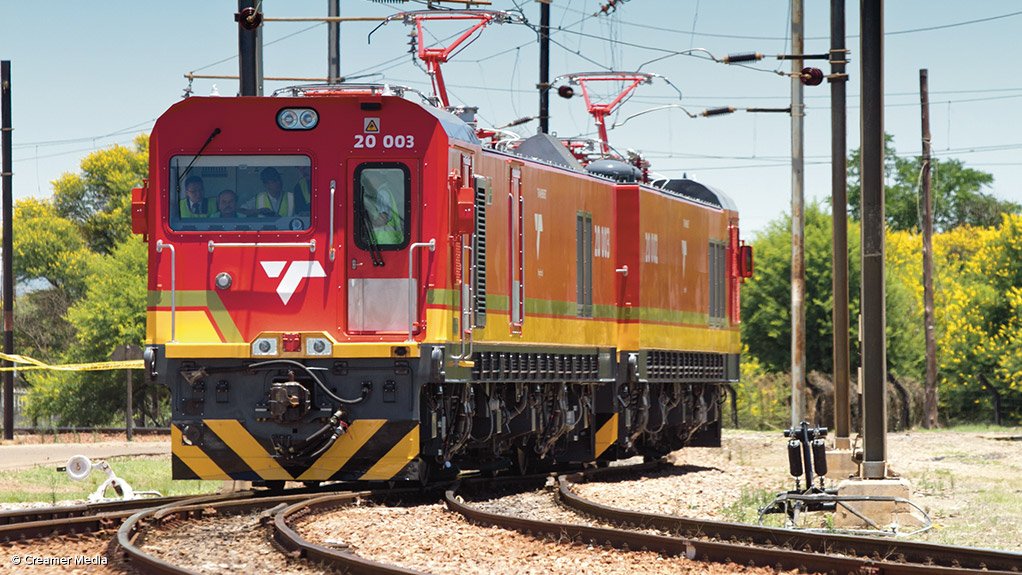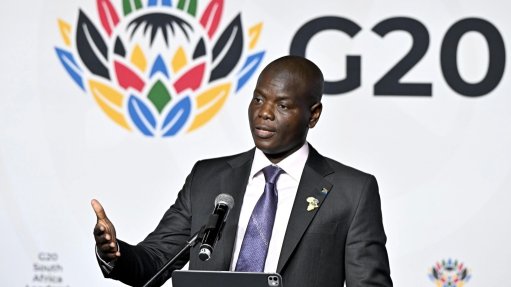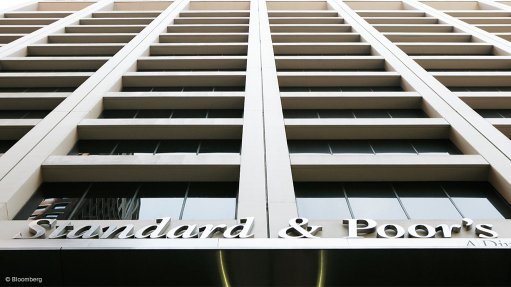Resolving locomotive supply impasse with Chinese firm crucial, says TFR CEO
It is crucial that State-owned freight rail operator Transnet Freight Rail (TFR) finds a solution to its long-standing locomotive spares supply impasse with Chinese manufacturer CRRC, TFR CEO Siza Mzimela told delegates at the 2023 Coal & Energy Transition Day, on July 18.
Outlining the various challenges facing the entity, she pointed out that the dispute with CRRC, underinvestment in infrastructure and security-related issues were having a significant impact on its operations.
“We're losing about 18.5-million tonnes a year because of the current impasse that we have with Chinese suppliers,” Mzimela said.
She noted that locomotives, particularly the Chinese-designed locomotives, were designed for specific corridors, making it difficult to make use of locomotives from other corridors on the coal corridor.
“Yes, there's work that we can do with the current fleet that we have and it speaks to improving reliability, and we’re working closely with our sister company Transnet Engineering to improve the reliability.
"A Chinese solution, however, would also help us to further deliver this 3.9-million tonnes with much more accuracy. What we have agreed with the Chinese suppliers at this point in time is that if we can find a solution to the current impasse, they would equally come into the country to assist us in making sure that we improve the reliability of even the locomotives that are currently operating in the system,” she added.
CRRC has supplied TFR with more than 450 electric locomotives, as well as about 22 diesel locomotives, but amid a dispute, TFR has struggled to secure spares to keep the locomotives operational. This has resulted in a significant challenge for coal miners to transport their product to the Richards Bay Coal Terminal for export.
Public Enterprises Minister Pravin Gordhan earlier this year travelled to China to help resolve the dispute with CRRC.
Meanwhile, IH Energy director Ian Hall told delegates at the conference that the country had sufficient coal resources to increase exports until 2035, while transitioning to using more renewable and greener energy resources, and highlighted the benefits this could provide for South Africa’s gross domestic product (GDP).
This would, however, require an improved performance by TFR.
“We accept the path that South Africa and the world has taken towards decarbonisation. South Africa has to meet its clean development mechanism commitments,” he said, while pointing out that the country had about 95-billion tonnes of coal resources.
He stated that coal miners have to deal with a number of constraints, particularly from investors that are reluctant to invest in fossil-fuel-related projects such as coal.
“A number of State-owned power utility Eskom plants are going to be decommissioned. They're going to go from 100-million tonnes to 70-million tons by 2030, and some of that coal is exportable."
He argued that even using conservative assumptions, South Africa still had enough coal in the country to export at least 70-million to 80-million tonnes, at least into 2035, and even beyond then as there would still be substantial coal to export.
“There's also other opportunities to use the Richards Bay Coal Terminal, which is a world-class facility. Beyond 2035, even if there wasn't enough coal, there are lots of other commodities that could be exported."
He also discussed the seaborne trade coal market, which is where South Africa’s export coal moves into.
This market comprises about one-billion tonnes of coal a year, but will probably decline to 800-million tonnes by 2035 to 2040.
“We were the second biggest exporter of coal up until about 2000, and since then, we've flatlined and declined in the last couple of years. Currently, the biggest exporters are Indonesia and Australia, and one can see how they've overtaken us. We were never able to exceed about 70-million tonnes of exports, even though we have 90-billion tons of coal in the ground.”
He encouraged South Africa to follow Australia's example of obtaining benefits from its resources.
"While we decarbonise our local economy, there's no reason for us not to continue to export at high levels. That's what we can see from both Indonesia and Australia.”
He also enthused over the positive impact increased coal exports could have on the country’s economy.
If South Africa was able to increase exports back to 73-million tonnes, the GDP impact could contribute to the creation of about 180 000 jobs.
“Given that the coal industry itself only employs 90 000 people, you can see how increasing exports is so valuable to the economy of the country, and how it could itself increase jobs. This would mitigate some of the challenges with the just transition."
Article Enquiry
Email Article
Save Article
Feedback
To advertise email advertising@creamermedia.co.za or click here
Comments
Press Office
Announcements
What's On
Subscribe to improve your user experience...
Option 1 (equivalent of R125 a month):
Receive a weekly copy of Creamer Media's Engineering News & Mining Weekly magazine
(print copy for those in South Africa and e-magazine for those outside of South Africa)
Receive daily email newsletters
Access to full search results
Access archive of magazine back copies
Access to Projects in Progress
Access to ONE Research Report of your choice in PDF format
Option 2 (equivalent of R375 a month):
All benefits from Option 1
PLUS
Access to Creamer Media's Research Channel Africa for ALL Research Reports, in PDF format, on various industrial and mining sectors
including Electricity; Water; Energy Transition; Hydrogen; Roads, Rail and Ports; Coal; Gold; Platinum; Battery Metals; etc.
Already a subscriber?
Forgotten your password?
Receive weekly copy of Creamer Media's Engineering News & Mining Weekly magazine (print copy for those in South Africa and e-magazine for those outside of South Africa)
➕
Recieve daily email newsletters
➕
Access to full search results
➕
Access archive of magazine back copies
➕
Access to Projects in Progress
➕
Access to ONE Research Report of your choice in PDF format
RESEARCH CHANNEL AFRICA
R4500 (equivalent of R375 a month)
SUBSCRIBEAll benefits from Option 1
➕
Access to Creamer Media's Research Channel Africa for ALL Research Reports on various industrial and mining sectors, in PDF format, including on:
Electricity
➕
Water
➕
Energy Transition
➕
Hydrogen
➕
Roads, Rail and Ports
➕
Coal
➕
Gold
➕
Platinum
➕
Battery Metals
➕
etc.
Receive all benefits from Option 1 or Option 2 delivered to numerous people at your company
➕
Multiple User names and Passwords for simultaneous log-ins
➕
Intranet integration access to all in your organisation





















